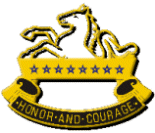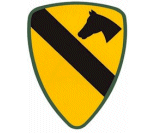DIGIJOURNAL 021--4 JULY 2007
DATELINE: 4JUL07 PATROL BASE PALIWODA
FAITH
What follows is the letter I sent to my youngest son, Nathanael, for his third birthday. Three years ago, on July 5th, Heather and I welcomed him into the world. Or, to be more accurate, Heather welcomed him in because I was over here when he arrived. After he was born, the nurses noticed some irregularities with his breathing, and they whisked him away to the ICU where he spent most of his first week of life. After several days of testing and monitoring, Nate’s system stablized and he was released from the hospital. During that week, however, spotty communication with Heather combined with my imagination, and I began to think the worst. Fortunately, this story has a happy ending, but it was the most traumatic thing that I have ever experienced.
As you read this, understand that my story is not unique, for many soldiers have shared the same experience. What is amazing about them is that both parents, despite the challenges of separation and deployment, continue to function. Life and soldiering must go on, and I hope this gives you an idea of the type of sacrifice that our military families make in order to support their soldier and their country.
My Beloved Son,
Your name comes from the Old Testament Hebrew and means “gift from God.” After all that I went through when you were born, you have definitely lived up to your title. You were born in the summer of 2004 while I was in Iraq on my first tour. After much debate, your mother and I decided that it would be better for me to come home for R&R leave after you were born instead of before. We both wanted me to spend as much time with you and Josh as possible. I will always admire your mother’s courage for having to face her pregnancy and your delivery without me by her side. I had classmates at West Point who were born while their fathers were in Vietnam, and it amazed me how their young mothers maintained any shred of sanity while pregnant, listening to the news, and wondering if their child would have a father.
You came early, three weeks early, but you were still considered full-term. I was on my way to a morning staff meeting when our S1, the guy in charge of personnel and administrative stuff, said to me, “By the way, chaplain, your son was born this morning.” I did not attend the meeting. Instead I rushed to the Brigade Chaplain’s office, got a satellite phone, and called home.
Your mother was doing very well, but she sounded worried. She told me that there had been some complications, that your blood counts were off, and that you were in ICU. She said that you would be fine and that you were only in the special ward because they wanted to take precautions. During the next three days your condition seemed to rise and fall with every phone call. I would call in the morning, and your condition would be worse, but in the afternoon you would be better. It was heart-breaking, and I felt so helpless because I was in Iraq and could not be back there with you or your mother. This is the great challenge of serving two families, the Army family and one's own family—-sometimes you have to betray one in order to honor the other.
I learned much about my faith-life then. I would stand in front of soldiers and talk about maintaining our faith in God during tough times, and I meant it and still do, but now I had to walk the walk. One night, things were real bad, and I remember one of our lieutenants knocking on my door in the middle of the night. Usually this meant that someone had lost a family member or had to receive bad news. When I looked at his face, it was completely white. All the blood had run out of it, and it was then that I knew that the knock was for me.
The only time your mother ever cried during my whole deployment was when I called that night. She asked me if I could come home early on emergency leave because you were having trouble. I always felt as a chaplain that I had to support my chain of command, and often my support took place when I would tell a soldier that his life crisis was a crisis but did not merit him going home on emergency leave. Now I was that soldier. I will always remember the words I had to speak to your mother, my wife, when I told her that, unless you were dead or dying, I could not come home. Her voice cracked, but she then recovered and said that you were not that bad. After I hung up I wondered if she would ever forgive me.
I believe that we must always seek for and do God’s will, and I did not think that I should somehow be immune from life’s fair share of calamities. But I remember bargaining with God throughout your entire first week. I specifically said that I did not care if I had to change your diapers until you were 65; I just wanted you to live. I also prayed that your mother would not be so devastated by your sickness and/or death that our marriage would disintegrate as well. Part of me felt selfish for praying that, but part of me did not.
I remember thinking some quirky things after you were born. I kept asking your mother time and time again was she sure that my name was on your birth certificate. It became an obsession. I also repeatedly asked if they spelled your name correctly. Most people spell Nathaniel with an “ie.” Since I always liked Hebrew more that Greek, I insisted on spelling it the Old Testament way, Nathanael, with an “ae.” So now you know who to blame when you have to forever correct people on how to spell your name. At least I did not name you Sue.
Three years have passed, and I am back in Iraq, and you are still here. Your mom and I think you will be the child that will age us. You still have some lingering health issues, but you have so far managed to overcome all the little physical hiccups that came with your life. I, or rather your mother, still have to change your diapers, but you are showing that you might even grow out of that. I hope you do before I get home.
Because of this war and how you came to us, I will always think of you with both joy and sorrow. I worried so much that it is really the only thing that I think about that might be classified as PTSD. You are such a smart and handsome little boy. My heart sings every time you grab my hand, whether it is to show me how you sneak cookies when your mother is not looking or when you want to shoot baskets on your small hoop. You were and are a gift from God. Happy Birthday from your father.
SUPPORT SPOTLIGHT
AMERICAN ASSOCIATION of VETERANS, Illinois
The American Association of Veterans from Illinois sent the 3/8 BN several hundred flame retardant shirts to wear under our uniforms. I tried to get them out to as many of our "trigger-pullers" as possible. This group also sent several hundred dollars worth of phone cards that were eagerly snatched up by our soldiers stationed at LSAA. Thank you AMVETS for thinking of us when you were looking for projects to work on over here.
CHAPLAIN'S BOOKSHELF
The Long Road Home: A Story of War and Family by Martha Raddatz

From time to time I will mention some of the books I am reading, especially if I think they will help soldiers, their families, and supporters back home better understand what life is like over here. The Long Road Home is an excellent book that has been making the rounds through our battalion. I know a book is good when all the soldiers who read it agree with the perspective offered by Ms. Raddatz. The book chronicles the battle the 2/5 Cavalry Battalion fought in OIF II as it was taking over its battlespace from the previous unit. Up to that point, relatively speaking, Sadr City was fairly docile. Everything exploded when the 1st Cavalry Division came in to swap out with the First Armored Division. The strength of this narrative is that the author sticks to reporting the facts, which are dramatic enough. She also tells the story of the wives and families back at Ft. Hood as the news of the battle and the casualties began to trickle in from Iraq. I have spoken to several soldiers in our battalion who were in 2-5 during their last rotation, and they all agreed that this book is an accurate portrayal. I will make the early prediction that, when they make a movie out of this book, it will have a similar impact that Blackhawk Down had for our understanding of the war in Somalia.
Gratia et Veritas,
Warhorse Archangel





No comments:
Post a Comment